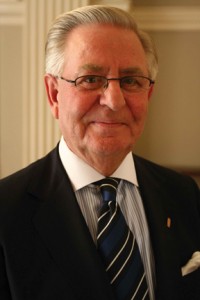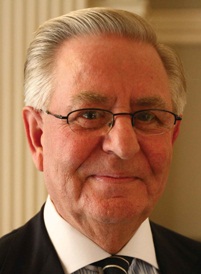
By Philip Whitfield
Who? What? When? Where? Why? Frequently we’re asked to explain ourselves. The most asked hereabouts: What will happen on 30 June? It’s promiscuous to flirt with what-ifs. Better to explain why the protest will fizzle out. Sunday is a black day for democracy, rivals aiming to win, not warm.
Why climb Mount Everest, The New York Times reporter asked George Mallory in March 1923? Because it’s there, he replied. Why protest 30 June? Same retort. Many’s the time I’ve sat in the snug at the Pen-y-Gwryd Hotel that inspired Mallory. I started going there, 11 years old, scaling rock faces by day singing with Welsh miners in the evenings.
Nowadays it would be regarded as bonkers. Creep downstairs at six in the morning before the family wakes. Travel unescorted by tram, ferry across the Mersey and a bus first to Chester then a green growling Crosville coach bound for Caernarfon 75 miles into Snowdonia – volcanic glacial sharp Ice Age arêtes.
Were they alive my parents would be jailed for child neglect. I don’t think they thought two bits about it, so long as I came back. When I started biking they did check if I had a puncture repair kit in my saddlebag. Today we teach kids blind man’s bluff rather than survival skills.
I went back to Pen-y-Gwryd to begin my journey to the Arab world. Chicago didn’t seem the right starting point 10 years ago. Chicago is a place you go to, not leave.
Reading Mallory’s book in the Tyrolean-style stüberl snug I latched onto a sentence that summed me up and, I imagine, many who’ll walk on Friday: One must conquer, achieve, get to the top; one must know the end to be convinced that one can win – to know there’s no dream that mustn’t be dared… is this the summit, crowning the day?
This time last year I returned to my haunt by plane from Cairo, train from London and my pensioners’ bus pass into Betws–y–Coed – walking through Capel Curig, the last 10 miles to stretch my legs under linear cumulus clouds circling the slate quarry down the Llanberis Pass.
I reread the names of those who eventually conquered Everest 60 years ago and left their signatures on the ceiling, including the summiteers Edmund Hillary and Sherpa Tenzing. I reached into my rucksack for my well-thumbed Mallory. On May Day 1999 his body had been found preserved in ice beneath the summit. Was the struggle worth it?
He’d answered the question during his life: If you cannot understand that there is something in man which responds to the challenge of this mountain and goes out to meet it, that the struggle is the struggle of life itself upward and forever upward, then you won’t see why we go. What we get from this adventure is just sheer joy. And joy is, after all, the end of life. We do not live to eat and make money. We eat and make money to be able to enjoy life. That is what life means and what life is for.
Mallory reminds me why I climb out of bed in Cairo each day.
Another man I greatly admire, a former president of Harvard, gave me an idea that has become my mission, too. Forty years in office, Charles William Eliot (1834-1926) transformed Harvard into a modern research university.
I have the letter Dr Eliot wrote to his mother on graduation explaining why he’d decided to go into teaching. In it, he says his mission – one’s mission – should be to be happy and useful in the service of God, then humankind.
Armed with a robust mission and the spirit of conquest, my life in Cairo has been fun and fulfilling. Each encounter has its joys, as Mallory would have it. Each achievement its happiness as Eliot would want.
Egypt poses a daunting challenge. Some leave the heavy lifting to others. Some with a vision reach the top. They prevail over doubters with their experience, knowledge of mission planning and their commitment to lead and encourage.
On 8 June 1924 – his last day – Mallory put on stout tweeds and hobnail boots as he did throughout the climb and settled his leather motorcycle helmet comfortably on his head. He carried a message to his wife Ruth to be left on top of the world.
From a distance Noel Odell watched him through a telescope until a cloud floated in, enshrouding him. Mallory was lost from view. Did he die on his way up, or on his way down? I’d like to think coming down. The letter was never found, probably blown away. Neither was his camera, which adds to the mystery.
His epitaph reads: When last seen he was going strong toward the top. Would that we could be so lucky in memoriam? Going strong toward the top.
30 June will succeed only in that it will memorialise the glorious revolution that began the journey. It will fail because its leaders are as poorly shod as Mallory. Worse, they have impaired vision.
Do the 30 June protesters have passion enough to topple Morsi? I doubt it. They are dogged and motivated not to give up. Some revolutionary rubbernecks are amusing themselves, but aren’t seriously challenging change.
Have they any idea how great the challenges are? Two business examples of life-changing change: Sony’s nerdy engineers transformed their moribund company into the world’s biggest entertainment enterprise. Xerox sat on an invention for decades until two feuding doctors needed their patient records copying.
Egypt’s 30 June protesters need vision. Perhaps an amalgam of Mallory’s and Eliot’s?
Conquer adversity. Be happy and helpful.
Philip Whitfield is a Cairo commentator.




